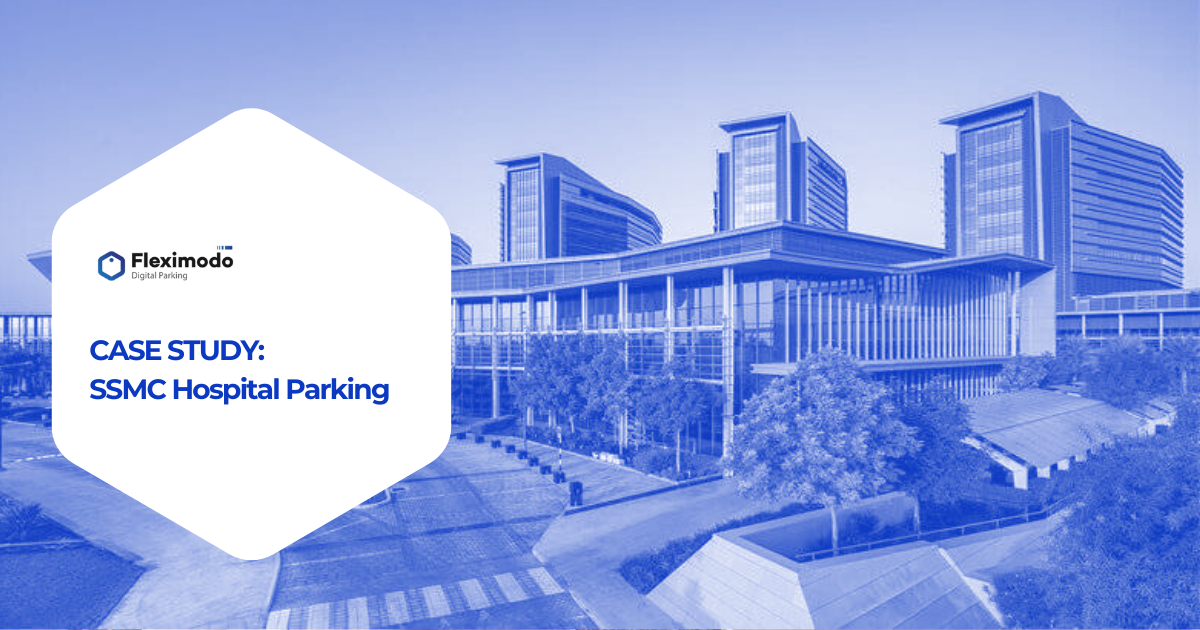Hospitality Parking: 1.750 IoT Parking Sensors, 2.000 Permit Cards
The client’s profile
Sheikh Shakhbout Medical City (SSMC) is a prominent healthcare facility located in Abu Dhabi, United Arab Emirates. As part of the Abu Dhabi Health Services Company (SEHA), SSMC plays a crucial role in delivering comprehensive healthcare services to the region. SSMC is situated in the capital city of Abu Dhabi, which is known for its modern infrastructure and rapid development. The facility spans over 400,000 square meters, making it one of the largest hospitals in the UAE. Abu Dhabi has a population of approximately 1.5 million residents, with SSMC catering to both local citizens and expatriates, thus addressing a diverse demographic’s healthcare needs.
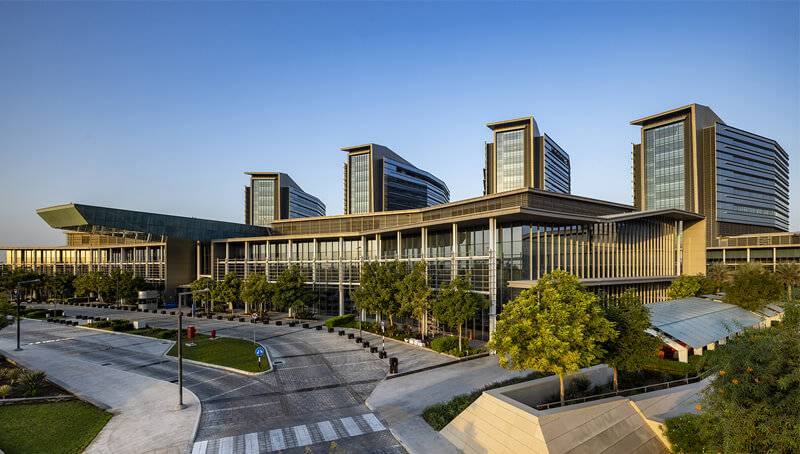
The Challenge
Before the implementation of IoT technology, the Sheikh Shakhbout Medical City (SSMC) in Abu Dhabi faced several parking challenges:
- Time-consuming parking searches for medical staff, visitors, and patients
- Limited parking availability during peak hours, leading to frustration and delays
- Difficulty in managing parking permits and enforcing parking regulations
The Solution: An IoT-Powered Parking System
To address these challenges, Fleximodo – Digital Parking came with a comprehensive IoT parking system. This system leverages 1.750 IoT parking sensors and 2.000 IoT permit cards to provide real-time parking information and streamline parking management.
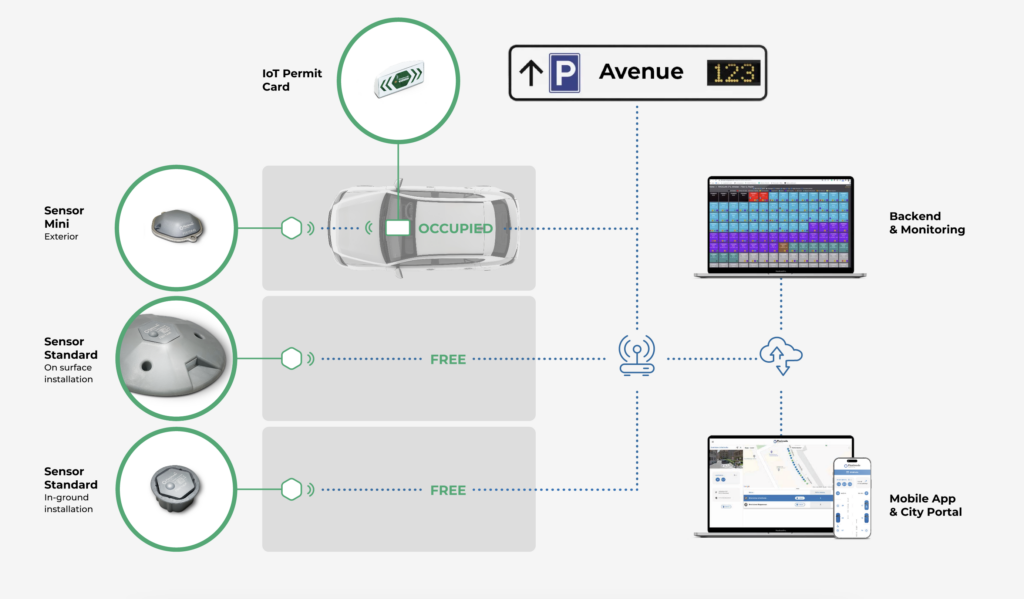
How it Works
- Sensor network: IoT sensors are strategically placed throughout the hospital’s parking areas, enabling precise monitoring of each parking spot.
- Bluetooth cards: Hospital staff and authorized visitors are issued bluetooth permit cards. Permit cards can provide essential information like employee titles, ensuring that spaces reserved for doctors are used only by doctors.
- Real-time data: When a vehicle with a permit card enters the parking area, the sensors detect the signal and transmit real-time data on available parking spaces to a central management system.
- Guided parking: The system directs visitors to available parking spaces through signage or mobile applications.
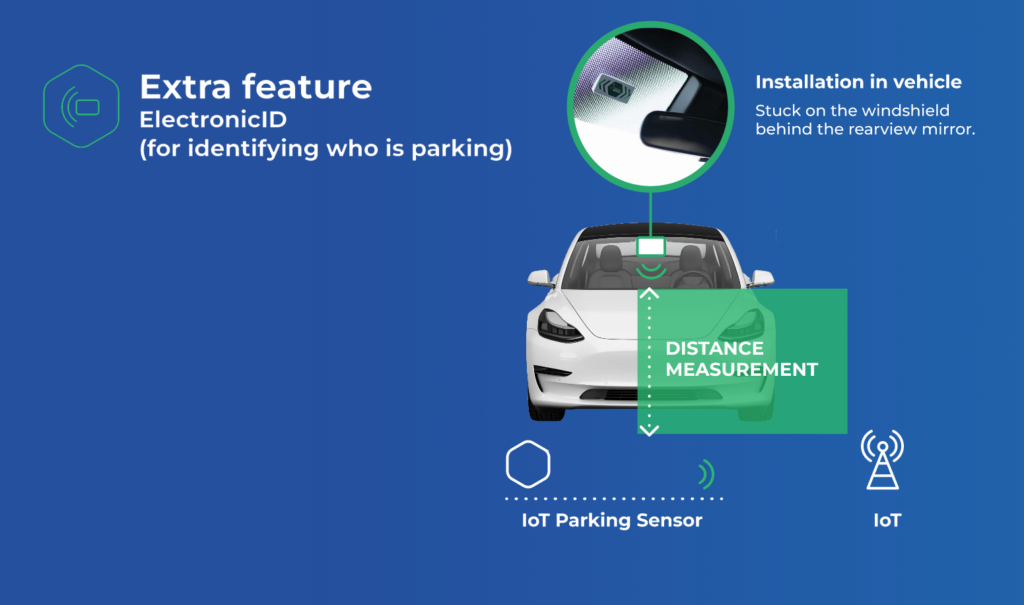
Results and Benefits
The implementation of the IoT parking system has yielded significant benefits for the hospital:
- Improved patient care: Due to reduced parking search times, medical staff can reach patients more quickly.
- Enhanced visitor experience: Visitors can find parking easily and avoid frustration, leading to a more positive hospital experience.
- Streamlined operations: Hospital administration can efficiently manage parking resources, allocate permits, and enforce regulations.
- Data-driven insights: The system provides valuable data on parking usage patterns, allowing for continuous optimization.
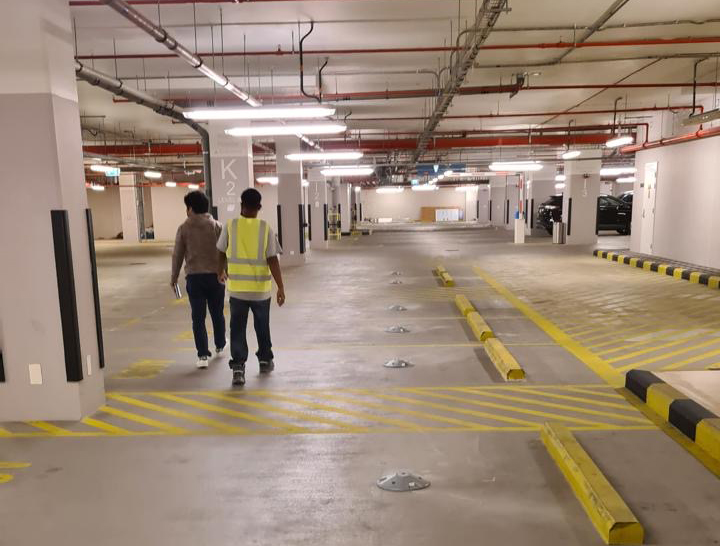
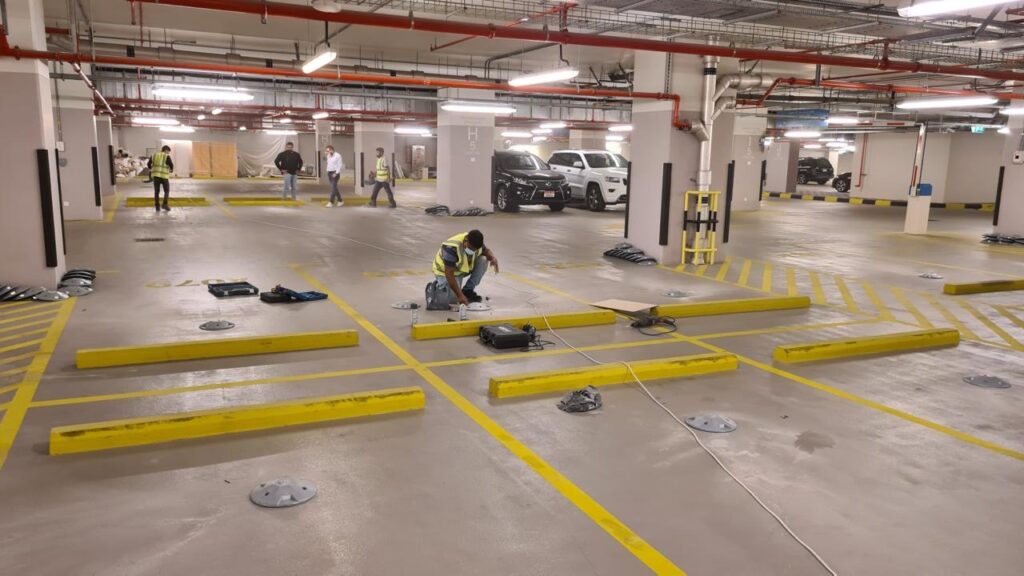
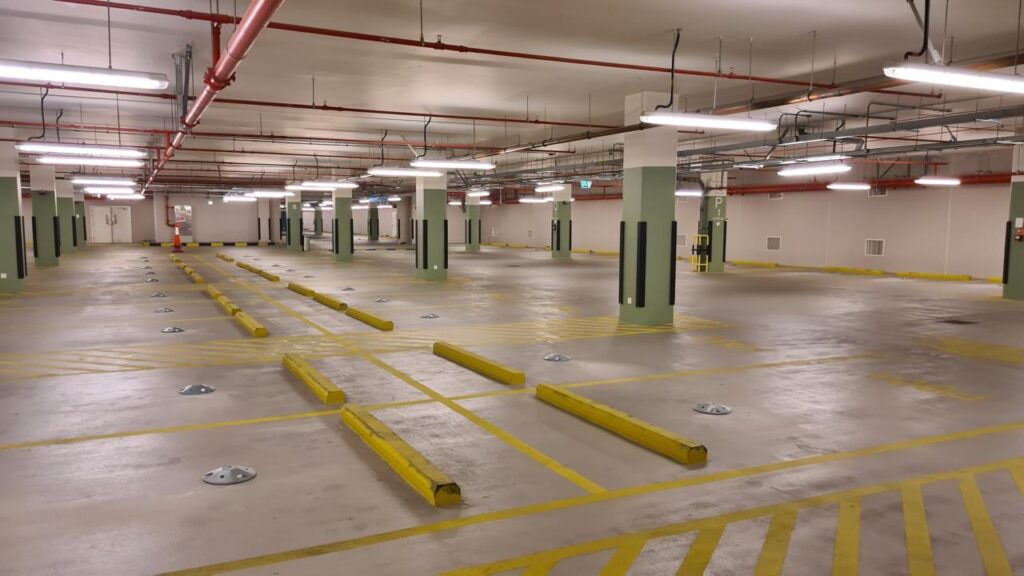
A day in the Life of a hospital
To illustrate the impact of the IoT parking system, consider a typical day at the hospital:
- Outpatient clinic: A patient arrives for a scheduled appointment. Using the hospital’s mobile app could be easily integrated with our software providing data on parking occupancy, they can easily locate an available parking space and navigate to it.
- Staff parking: Hospital staff can find dedicated parking spaces close to their departments, reducing commute time and improving work-life balance.
The IoT-powered parking system in Abu Dhabi has demonstrated the transformative potential of technology in improving hospital operations. By providing real-time parking information, streamlining permit management, and enhancing the overall patient and visitor experience, this system has set a new standard for hospital parking solutions.
